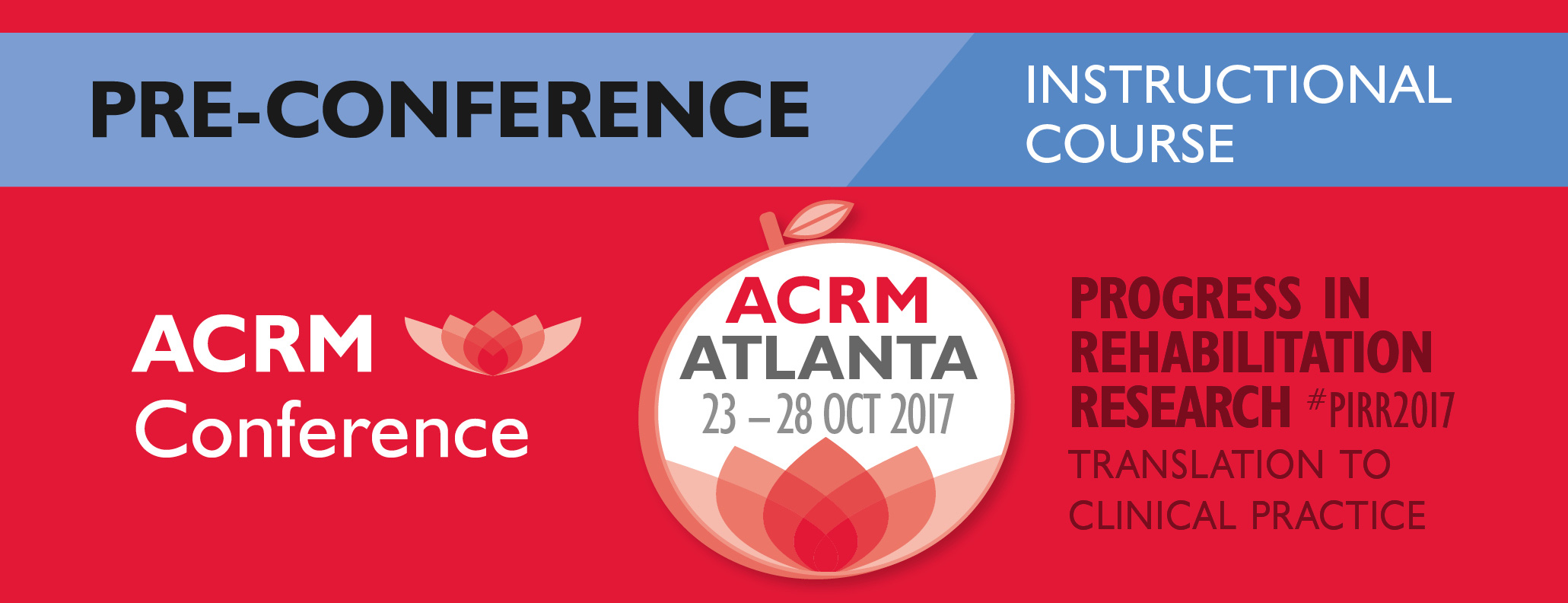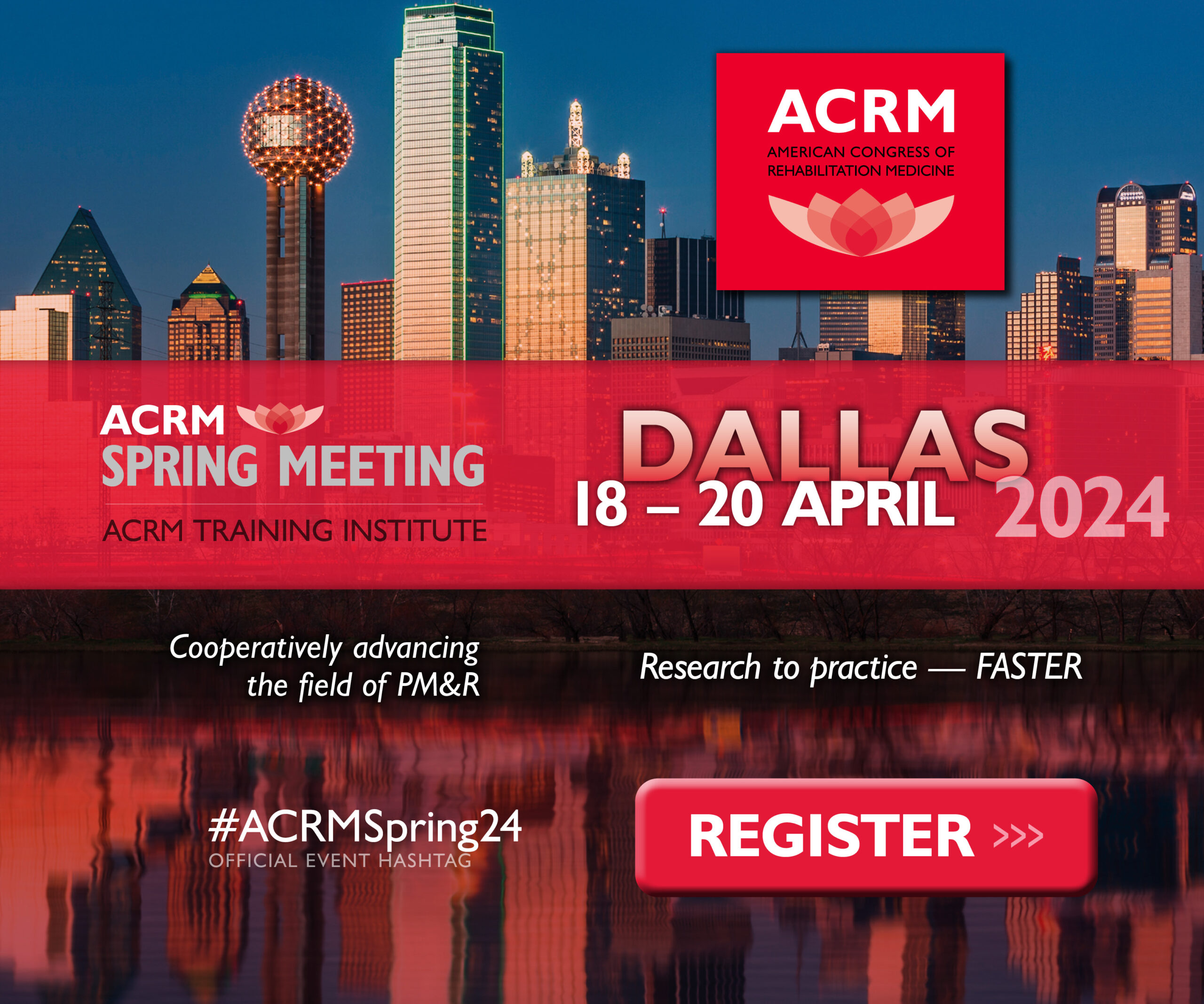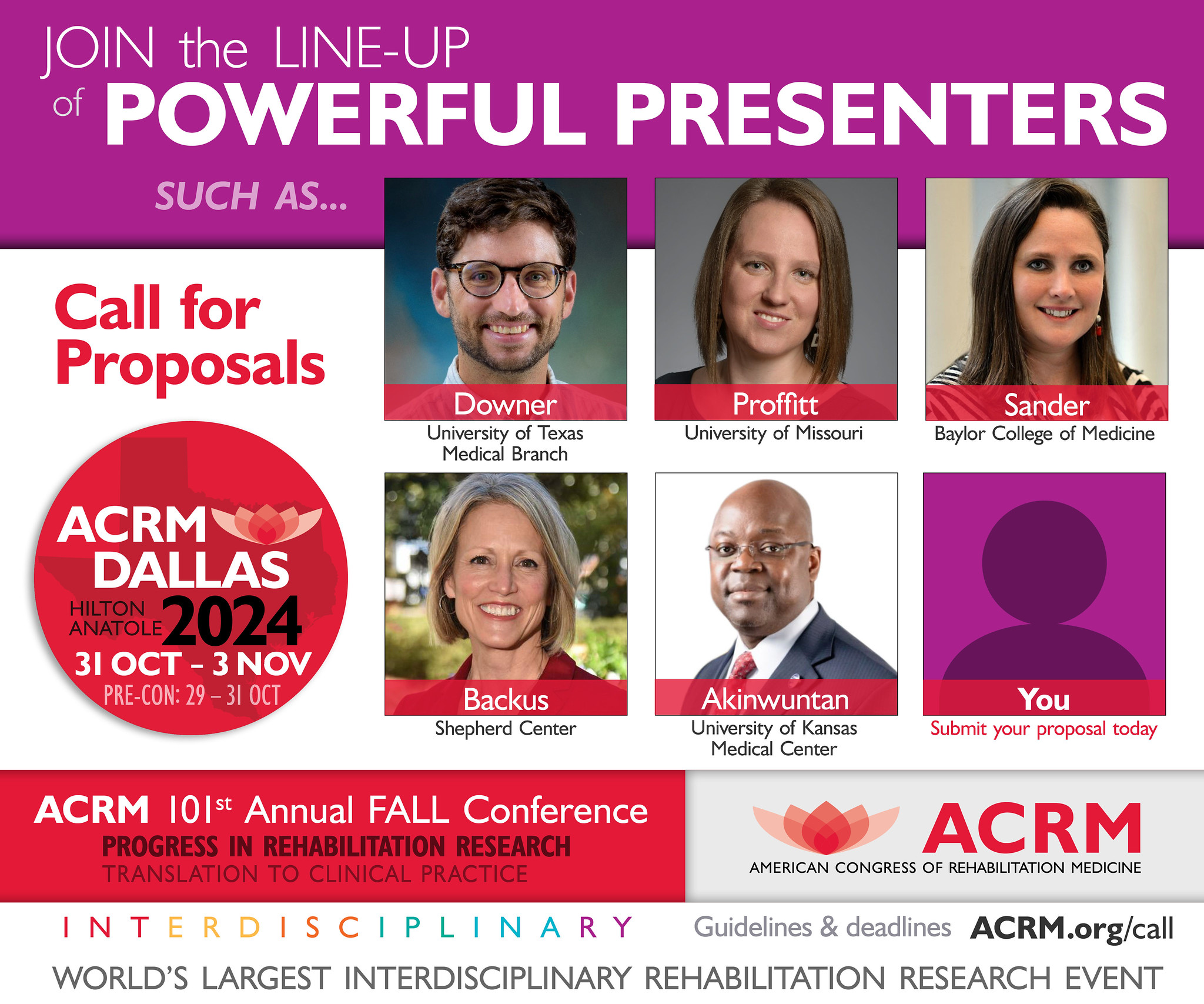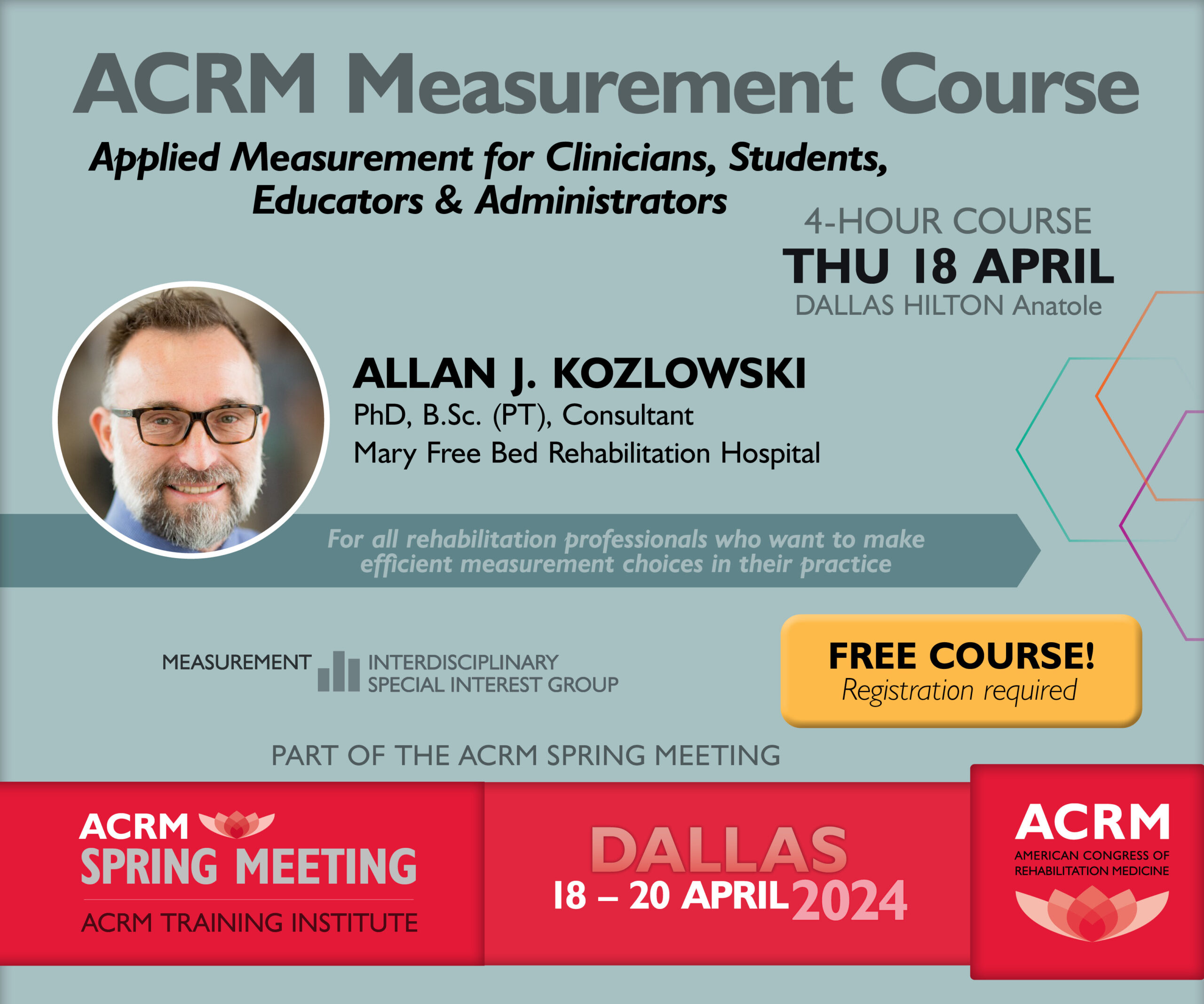TUES 24 OCT
PART 1: 8:30 AM – 12:30 PM
PART 2: 1:30 PM – 5:30 PM
Primary Content Focus: Brain Injury
Secondary Content Focus: Measurement
Two teams of TBI researchers, scientists from University of Pittsburgh Department of Rehabilitation Research and scientists from Carolinas Medical Center/University of North Carolina, Department of Physical Medicine and Rehabilitation will provide information about the current gaps in characterization of TBI symptoms, severity and outcomes. The presenters will also describe how to pull together cross-field teams and include biomarkers and biometrics in study measure list for enhancing accuracy, increasing understanding of TBI complexities, and advancing the field. Exemplars will be provided from the research of both teams of presenters.
LEARNING OBJECTIVES
- Discuss limitations of current measures used by TBI researchers and ways in which biomarkers and biometrics can enhance characterization of persons with TBI and their recovery trajectories
- Describe some examplars from recent research that demonstrate enhancement of TBI research using biomarkers and biometrics
- Describe the Rehabilomics Model: ICF guided biomolecular approach to personalizing prognosis and care among individuals with disabilities
- Describe tools and research capacity needed to develop a rehabilomics program of research
PRESENTERS
Janet Niemeier, PhD, ABPP (RP)
Carolinas Medical Center, Department of Physical Medicine and Rehabilitation
Amy Wagner, MD
Center for Neuroscience at the University of Pittsburgh
Mark Hirsch, PhD
Carolinas HealthCare System
Mark Newman, PhD, MPH
Carolinas HealthCare System
Raj Kumar, MPH
University of Pittsburgh Graduate School of Public Health
Shannon Juengst, PhD
Department of Physical Medicine & Rehabilitation at the University of Texas Southwestern Medical Center
Amery Treble-Barna, PhD
Division of Pediatric Rehabilitation Medicine at Children’s Hospital of Pittsburgh of UPMC
BIOS

Dr. Jan Niemeier has over 20 years experience in clinical practice and research in the field of rehabilitation psychology and rehabilitation research. Her research has received funding for 15 years and has focused primarily on development as well as testing of efficacy of neurobehavioral and cognitive interventions for persons with disabilities. Dr. Niemeier is a board-certified Rehabilitation Psychologist and Neuropsychologist and has specialized in research in brain injury rehabilitation. She has served as Principal Investigator and Project Director for funded projects with the National Institutes of Health (NIH) and the National Institute of Disability Rehabilitation and Research (NIDRR). She has also been Project Director or co-investigator of multiple NIDRR controlled trials and RCTs of interventions for patients with TBI, stroke, and SCI and their family members. She is author of over 60 peer-reviewed journal articles, book chapters, books, and abstracts and reviewer for 14 peer-reviewed journals. She serves as appointed panel member for NIH/NICHD and on the U.S. Secretary of the Department of Veteran’s Affairs Advisory Committee for Prosthetics and Special Disabilities. Her contributions to science include a visual imagery cognitive behavioral intervention for improvement of hemispatial inattention after brain injury, a manualized return to work intervention for post-acute persons with brain injury, and refinement of our understanding of variables that moderate response to and adjustment to disability. She has been focused more recently on gender differences in response to and recovery from TBI.

Amy K. Wagner, MD, is a tenured Associate Professor and Endowed Chair for Translational Research in the Department of Physical Medicine and Rehabilitation at the University of Pittsburgh. She holds a secondary appointment in the Department of Neuroscience. She is also an Associate Director for Rehabilitation Research at the Safar Center for Resuscitation Research. Dr. Wagner is a leading investigator in the use of biomarkers in developing and optimizing individualized treatment outcomes, also known as “theranostics” or “personalized medicine.” She has defined this field of translational, rehabilitation centered biomarkers research as Rehabilomics Research. (see www.rehabilomics.pitt.edu for more information). Dr. Wagner currently holds a NIDRR funded TBI Model System of Research and Care Excellence to further develop the TBI Rehabilomics Research Model. Her research has also been funded by the DoD, NIH, and CDC. Her research also focuses on the neurobiology of neuroplasticity and recovery after TBI and how commonly used therapeutic agents impact neurobiological and neurobehavioral processes associated with neuroplasticity and recovery. Dr. Wagner has published more than 80 original research manuscripts and has over a 25 review articles on her work. Dr. Wagner has served as research mentor to dozens of undergraduates, medical students, graduate students, post-doctoral fellows, and resident physicians, and to date, they have received over 50 awards and scholarships for their research. She is a member of the University School of Medicine Graduate Faculty, is Training Faculty for the Center for Neuroscience at the University of Pittsburgh. Clinically, Dr. Wagner treats patients with neurological conditions and injuries in inpatient rehabilitation and as a physiatrist consultant during their acute hospitalization at the University of Pittsburgh Medical Center.
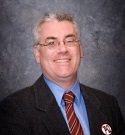
Mark Hirsch PhD is a Senior Scientist, Department of Physical Medicine and Rehabilitation, Director, Resident Research Education (PM&R) and PM&R lab. He received his PhD at Florida State University at age 29 with a thesis titled “Activity-dependent enhancement of balance in Parkinson’s disease”. He received post-doctoral training on an NIH T32 fellowship in neurorehabilitation research at Johns Hopkins University (96-99), Department of Physical Medicine and Rehabilitation (B. J. de Lateur, MD, mentor) and a neurology fellowship (2000-2001) at Dusseldorf University (H. Hefter, MD, PhD, mentor). He has been at Carolinas Rehabilitation since 2004 and together with Dr. Sanjay Iyer, he developed the Parkinson Network which in 2011 received funding from the Park Foundation and became known as RENEW Carolinas Parkinson Initiative. His current research interests are gait and balance, mostly in Parkinson’s disease and patient/provider collaboration. He is the past Chair of the Board of Directors of the Parkinson Association of the Carolinas and serves on many committees and boards internationally including the International Association of Parkinsonism and Related Disorders. Hirsch, a retired competitive formation team ballroom dancer, works with doctors and therapists who want to give patients a more active role in their health care and he promotes greater cooperation in the health care system. He envisions a system he calls ‘participatory healthcare’.
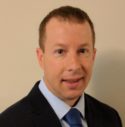
Mark Newman is currently an Assistant Professor and Research Scientist in the Department of Physical Medicine and Rehabilitation at Carolinas Medical Center. His research experience has focused, in large part, to the role physical function plays in the aging process. Throughout his career he has worked on federally funded research investigations with various physical function measures as the primary outcome. Dr. Newman has experience administering physical function tests to both healthy and physically disabled populations. Additionally, he has experience in the design and implementation of physical activity interventions as well as experience analyzing and presenting data from these trials. As a Carolinas HealthCare System Data Steward, he has completed advanced training on database construction, data management, and data quality principles and application using the Research Electronic Data Capture (REDCap) database platform.

Raj Kumar, MPH, is a PhD student in Neuroepidemiology at University of Pittsburgh Graduate School of Public Health. He previously received a Master’s in Public Health in Epidemiology from Yale University in 2013. Raj has extensive expertise in the application of biostatistical and epidemiological methods in rehabilitation research, specifically for Traumatic Brain Injury (TBI). To date, he has 14 original research publications, co-authored a book chapter, and presented his research in multiple national conferences.
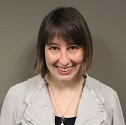
Shannon Juengst, PhD, is a Certified Rehabilitation Counselor and an Assistant Professor in the Department of Physical Medicine & Rehabilitation at the University of Texas Southwestern Medical Center, with a secondary appointment in the Department of Rehabilitation Counseling. Dr. Juengst’s research broadly examines factors associated with long-term community-based outcomes for individuals with traumatic brain injuries and other cognitive disabilities. Her more recent work has focused on behavioral and emotional outcomes, investigating innovative telehealth methods for assessing and improving these outcomes in the community. She has had extensive training in research design and methodology, including advanced statistics, clinical trials design, and psychometric evaluation in health care research.
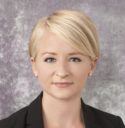
Amery Treble-Barna, PhD, is a clinical assistant professor in the Division of Pediatric Rehabilitation Medicine at Children’s Hospital of Pittsburgh of UPMC and an NIH T32 postdoctoral scholar in the Safar Center for Resuscitation Research at the University of Pittsburgh School of Medicine. Dr. Treble-Barna provides comprehensive outpatient neuropsychological evaluations for children with a variety of medical conditions affecting the brain. Patients served include children with acquired or neurodevelopmental conditions, such as traumatic brain injury, stroke, brain tumors, epilepsy, cerebral palsy, and spina bifida. Through her research, Dr. Treble-Barna aims to understand the various developmental, neuropathological, environmental, genetic, and epigenetic factors that interact to produce neurobehavioral phenotypes. In line with this goal, she has established a programmatic line of research studying children with spina bifida myelomeningocele (SBM) and children who sustain traumatic brain injury (TBI). Her research program is guided by five central objectives: (1) to characterize neurobehavioral outcomes; (2) to identify underlying neural correlates and pathophysiological mechanisms; (3) to illuminate the moderating role of the family environment in promoting neurobehavioral function and recovery; (4) to elucidate genetic and epigenetic influences on neurobehavioral function and recovery; and (5) to inform improved prognostic tools and novel interventions. Through the study of congenital and acquired childhood brain disorders, she aims not only to elucidate general principles of typical and atypical brain function, but also to increase understanding of specific conditions such that findings can be translated into improved clinical care.
ACRM Annual Conference, Progress in Rehabilitation Research (PIRR#2017)
CORE: 25 – 28 OCT 2018 // HILTON ATLANTA, USA // PRE-CONFERENCE 23 – 25 OCT
REGISTER ONLINE HERE or Register by Phone: +1.703.435.5335
 |
 |
 |
 |


